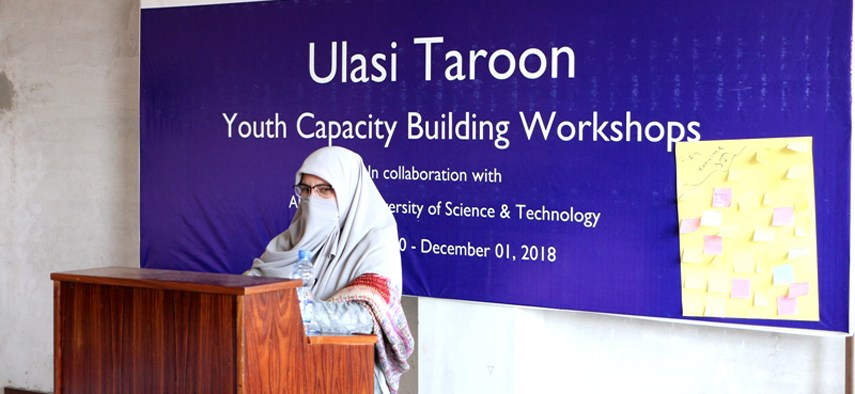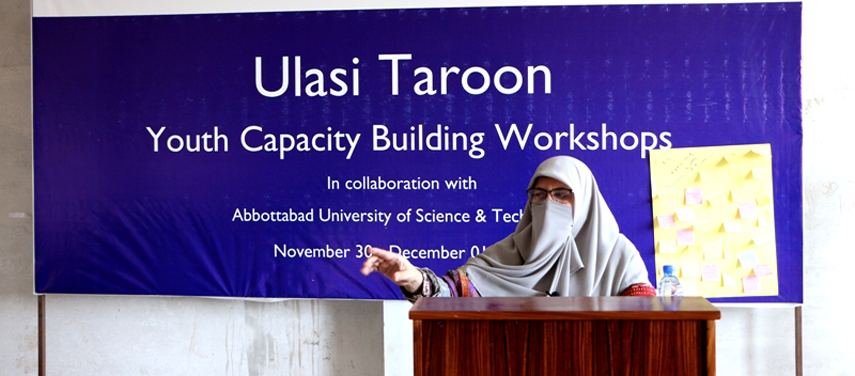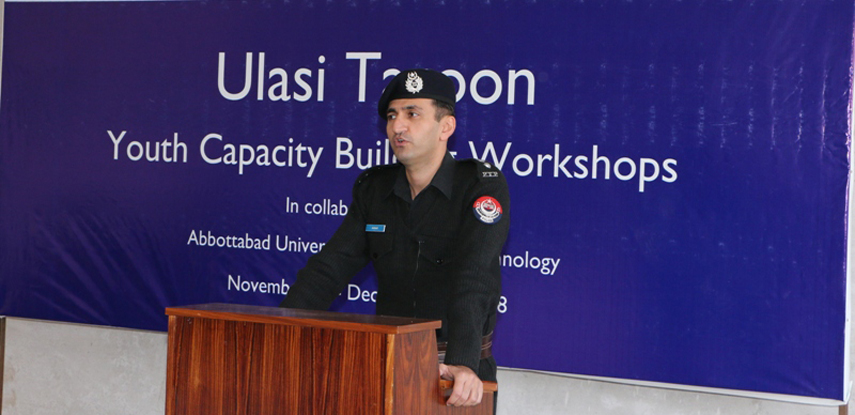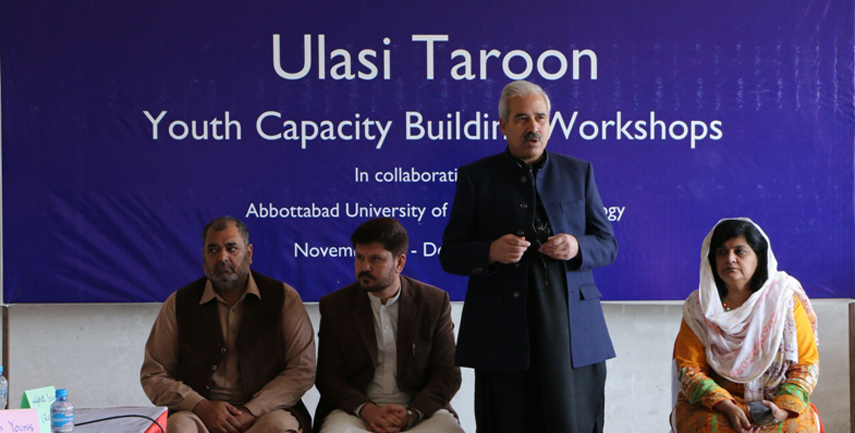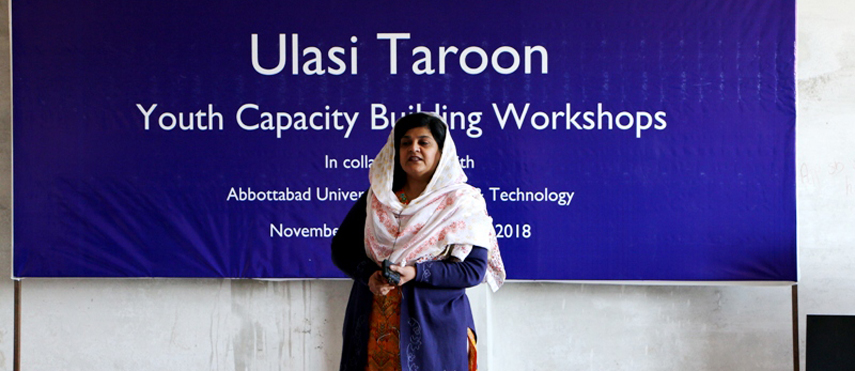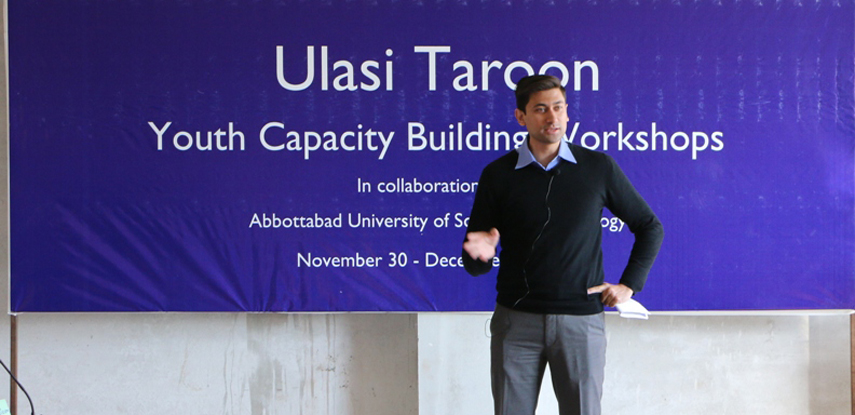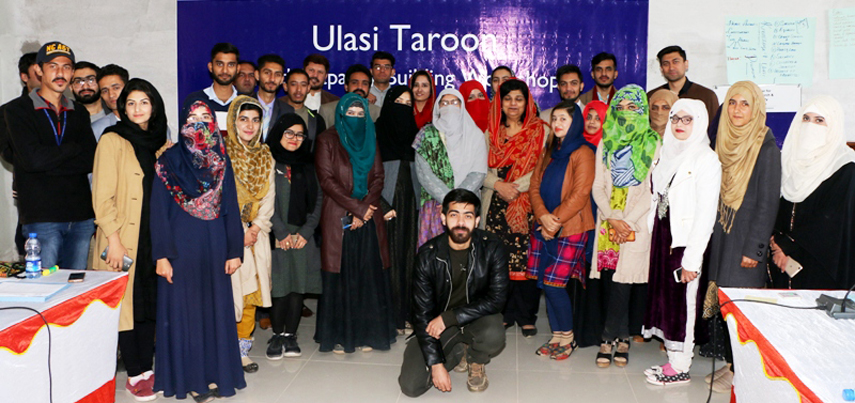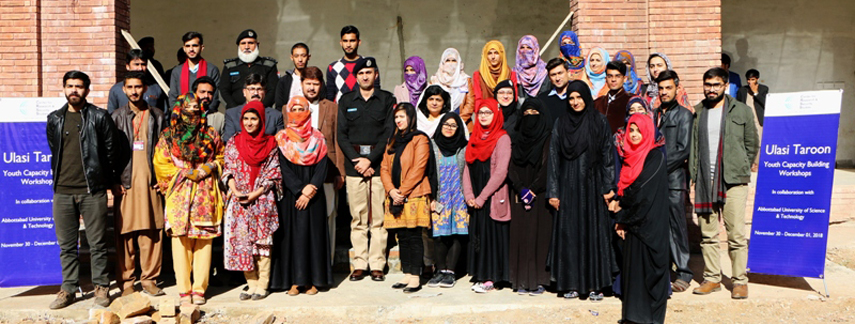Democracy is about inclusion where the citizens feel that they belong to the society, government and the state and are being represented on the issues that concern them. Besides parliament, judiciary and executive, media is also considered as fourth pillar of the state as it also represents the society. The primary role of parliamentarians is to voice the concerns of citizens in the parliament and convey their feedback critical to inclusive policy making processes, as the policy making should be inclusive of the matters that concern the citizens the most. The public representatives also need to aware of their roles and responsibilities as policy makers in order to do justice to their mandate and make public friendly laws. Besides representation, the other important roles of parliamentarians are oversight, representation and budget making.
These were the notions expressed by Ms. Amna Sardar, former member of provincial assembly during the twelfth round of Ulasi Taroon, Youth Capacity Building Workshops organized by the Center for Research and Security Studies (CRSS) at the Abbottabad University of Science & Technology (AUST) from November 30 – December 01, 2018.
She further said that the system of shadow ministries in the Britain is an inspiring model for Pakistan to adopt. The consideration for budgetary allocation should be based on the principles of equity where the most deserving areas get most of the attention for development. The legislature, executive and judiciary should only commit to legislation, execution and adjudication respectively. The bureaucrats also have an important role to support and meet the formalities and legal requirements related to policy making, they should not create hurdles in the process.
Rule of law means indiscriminate accountability where law applies on everyone equally. Everyone is subject to law and accountability no matter how powerful. To understand good governance, it is important to understand poor governance.
Our educational curriculum needs to be revised and adapted to the modern times requirements and challenges where it is able to educate and promote the democratic values – enshrined in the constitution – critical to social cohesion.
Mr. Abbas Majeed Marwat, District Police Officer, Abbottabad said, “Unfortunately, the police in Pakistan has a very poor image”. The way police behaves with us is the way we behave within the society, as the police also comes from society. So if we expect police to behave well with us, we need to improve our own behaviors. Khyber Pakhtunkhwa police is a role model for other provinces to emulate. A number of steps have been taken to build its image and improve public relations to address the longstanding public-police trust deficit. The role of social and broadcast media is also very crucial to effective image building of police. They should play a positive role rather than ridiculing the department.
The DPO Abbottabad added that the public should respect the police for the immense sacrifices made; going above and beyond the call of their duty. They should also understand the challenges of formidable nature that the police is facing in the line of duty and that they are simultaneously involved in such a broad range of crime-control and public-service activities.
Depoliticization and operational autonomy of police is crucial to uphold rule of law. The police must be given authority where the authority is administered with responsibility. The law needs to be revised and adapted to meet the modern times’ requirements and challenges. The penalties over the violation of law are meant to create deterrence against and discourage the crimes in the society; especially their recurrence.
While talking about the importance of capacity building initiatives for youth – like Ulasi Taroon – and the role of universities, Dr. Iftikhar Ahmad, Vice Chancellor, AUST said, “This is what the universities are meant for; the discourse embedded in the constitutionalism and the values of cohesion as it aims to enhance awareness on the prerequisites of social peace and harmony. Such a campaign becomes much more crucial given the fact that it aims to cultivate the future leaders in these ideals of cohesion and coexistence; the people who will be calling the shots in the future. The youth not only need to know their own rights but also have knowledge of and show respect for others rights. Also the knowledge comes with responsibilities, as you learn about the democratic values and tolerance perspectives, there is a huge onus on you to further disseminate these positive messages within your respective social and professional spheres. The purpose of varsities is to produce the future leaders and not just the degree holders. Besides honesty, the good governance requires the relevant and appropriate knowledge of the people at helm of the affairs of governance.
Mr. Saifullah Khan, Registrar, AUST appreciated the CRSS initiative of Ulasi Taroon; noting that it aims to promote peace and cohesion. Such activities should take place more often as universities are the breeding grounds for future leaders.
Prof. Dr. Faisal Norooz, Director Students Affairs, Hazara University was also present at the closing ceremony of the workshop and opined that sensitizing youth in the issues of democracy and governance is need of the hour. Our youth is our hope for a better tomorrow and thus we need to equip them with the skills – through cultivation in the core ideals of respect, tolerance, equality and peace – necessary to counter extremism and lead peaceful conflict resolution.
Mrs. Shagufta Khalique, an educationist, said that the peace and cohesion in a society are directly proportional to the level of access and security of human rights to the individuals. Diversity is a natural mosaic with each fragment having its individual identity that adds to the beauty of it. Critical thinking and cross-cultural interactions help in respecting diversity. Each culture and faith is unique and if explored, one comes across many common grounds, so we must try to highlight the similarities instead of differences.
Mr. Malik Mustafa, Manager Programs, CRSS said that the society devoid of disparity, distinction, discrimination or any other divisive factors which engender divisions, distrust and conflict is known as a cohesive society. Social cohesion helps people to work together for the attainment of shared goals, designed and agreed upon to improve the living conditions for all. It ensures greater inclusiveness, more civic participation and creating opportunities for upward mobility. It is the glue that holds society together.
Ulasi Taroon is a counter radicalization initiative of CRSS that aims to address the radicalization challenges, extremist ideologies and foster social cohesion through a discourse anchored in the core constitutional values which are fundamentally essential prerequisites for social peace and harmony. The endeavor aims to cultivate and sensitize the youth – in the universities across KP – in the core values in the Pakistani constitution and our social contract. It’s an attempt to highlight the criticality of abiding by these ideals – such as adherence to rule of law, primacy and sanctity of constitution, equal citizenry, responsible citizenship, respect for fundamental human rights, tolerance for diversity and different opinions, inclusive democracy and good governance – as a measure of fostering social cohesion and peaceful co-existence.

